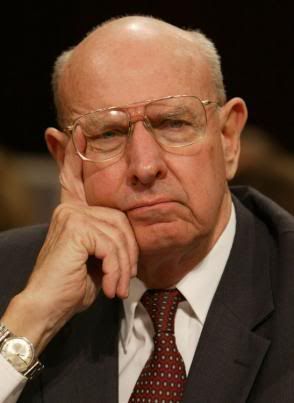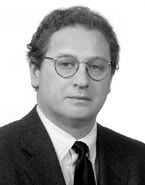On PATRIOTs and JUSTICE: Leahy’s PATRIOT Renewal
The House and Senate had hearings on the reauthorization of the PATRIOT Act last week while I was traipsing around the Big City. You can access links to watch the Senate hearing here and the House hearing here. In addition, four Senators (including Feingold, Dodd, Leahy and Merkley) have introduced a bill to repeal telecom immunity, and Senators Feingold and Durbin introduced a JUSTICE bill to further roll back the PATRIOT Act as well as parts of FISA.
I’m going to try to do a blizzard of posts between now and Thursday, when the Senate Judiciary Hearing will be marking up its version of the bill. For now though, let me review what Leahy’s reauthorization bill–S.1692–does. As described by Leahy in his testimony, the PATRIOT reauthorization extends the sunset for some PATRIOT provisions to 2013, but adds in additional oversight as follows.
I introduced a bill with Senators Cardin and Kaufman that aims to strike the kind of balance the administration urges. It will extend the authorization of the three expiring provisions with new sunsets. It adds checks and balances by increasing judicial review of Government powers that capture information on U.S. citizens. It expands congressional oversight and public reporting on the use of intrusive surveillance measures.
[snip]
In response to these concerns, our bill would impose higher standards on the issuance of NSLs and improve judicial oversight of their use. The bill also addresses the constitutional deficiency recently identified by the Second Circuit Court of Appeals, which found that the nondisclosure, or "gag orders," issued under NSLs infringe constitutional rights, as I have long maintained. The bill establishes a procedure giving the recipient of an NSL greater ability to challenge a gag order, eliminates presumptions that allow the Government to ensure itself of victory in defending such orders, and imposes a renewable one-year time limit on these orders.
[snip]
The power of the Government to collect records for tangible things under Section 215 of the original Patriot Act, commonly referred to as the "library records" provision, is another authority that I fought hard to reform during the last reauthorization. The Leahy-Cardin-Kaufman bill adopts the appropriate constitutional standard that I supported in 2006. The standard we propose eliminates the presumption in favor of the Government and, instead, requires the Government to show the connection between the items sought and a suspected terrorist or spy.
This bill would also establish more meaningful judicial review of Section 215 orders and the gag orders covering them. Read more →

 Thomas Pickering is a career diplomat who served as U.S. ambassador to Jordan (1974–1978), Nigeria (1981–1983), El Salvador (1983–1985), Israel (1985–1988), the United Nations (1989-1992), India (1992–1993) and Russia (1993–1996). He is now vice chairman of
Thomas Pickering is a career diplomat who served as U.S. ambassador to Jordan (1974–1978), Nigeria (1981–1983), El Salvador (1983–1985), Israel (1985–1988), the United Nations (1989-1992), India (1992–1993) and Russia (1993–1996). He is now vice chairman of  Vice Admiral Lee Gunn (Ret.), who served in the final three years of his 35-year military career as Inspector General of the Department of the Navy, is now president of the Institute of Public Research at the
Vice Admiral Lee Gunn (Ret.), who served in the final three years of his 35-year military career as Inspector General of the Department of the Navy, is now president of the Institute of Public Research at the  John J. Farmer Jr., the former attorney general of New Jersey was Senior Counsel to the 9/11 Commission. He is a
John J. Farmer Jr., the former attorney general of New Jersey was Senior Counsel to the 9/11 Commission. He is a  Frederick A. O. Schwarz, Jr. Chief Counsel at the
Frederick A. O. Schwarz, Jr. Chief Counsel at the  David B. Rivkin, Jr. is a
David B. Rivkin, Jr. is a  Jeremy Rabkin, a renowned scholar of internationalaw, is a professor at George Mason University School of Law in Arlington, Va. A member of the board of directors of the
Jeremy Rabkin, a renowned scholar of internationalaw, is a professor at George Mason University School of Law in Arlington, Va. A member of the board of directors of the